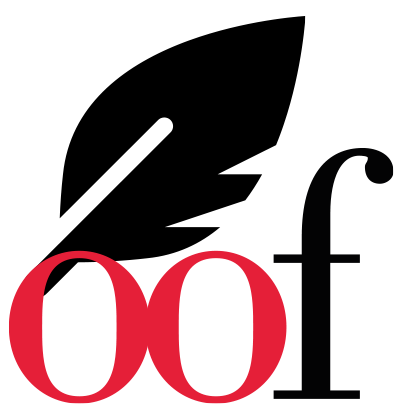Corso Italia 7
Rivista internazionale di Letteratura – International Journal of LiteratureDiretta da Daniela Marcheschi
5th International Humour Conference Eat, drink and be merry: Pairing food, wine and humour
DIJON, October 26-28, 2016 – International House – University of Burgundy
Linguistics, Literature, Literary Criticism, Stylistics, Translation, Culture, History, Anthropology, Art
DIJON (Burgundy, FRANCE) 26-28 October 2016
Dis-moi ce que tu manges : je te dirai ce que tu es.
[Tell me what you eat: I’ll tell you who you are]
(Jean Anthelme Brillat-Savarin, Physiologie du goût, 1825)
Dis-moi de quoi tu ris, et je te dirai qui tu es.
[Tell me what you laugh at, and I’ll tell you who you are]
(Marcel Pagnol, Notes sur le rire, 1947)
Much like the social aspects of eating and drinking, laughter and humour are often held to be part of what makes us human, as universal human practices occurring across times, places and cultures. Yet this very universality is also part of what makes the study of humour so complex, since so much of how, and why, we laugh, and what we laugh at, and with, is embedded in an intricate web of cultural, individual and even biological preferences. Humour is, in other words, both a social activity and a matter of taste, capable of excluding and harming people, as well as bringing them together.
With the theme “Eat, drink and be merry: Pairing food, wine and humour”, held on campus at the University of Burgundy in Dijon, the future site of the Cité Internationale de la Gastronomie et du Vin, this conference aims to explore, both in theory and practice, the social and celebratory aspects of laughter and humour. It will focus particularly on the ways in which laughter and humour and the increasingly important field of humour studies intersect with the practices of eating and drinking, food and foodways, festive celebrations, and other forms of merriment. The combination of humour, food and wine conjures up images both of civilised refinement and wit – the stuff of a thousand treatises on good manners – and the grotesque excesses of Bakhtin’s “lower bodily stratum” represented in texts ranging from Rabelais’ Gargantua and Pantagruel to Marco Ferreri’s film La Grande Bouffe. Between these extremes, the multiple connections between food, wine, humour and social behaviour offer fertile grounds for approaches drawing on a wide range of methodologies and disciplines.
The organisers would like to invite proposals for papers on topics at the intersection of food, wine, merriment, and humour studies, addressing questions that might include, but are by no means limited to, the following:
Are eating, drinking and being merry inherently complementary? What happens when food and wine do not lead to merriment?
What can we tell about someone by the way they laugh, or what they eat? Can the study of humour inform the study of food and wine, and vice versa?
How can we study the practices of eating, drinking and laughing, across time, space and culture? Does the study of humour pose similar problems to the study of eating and drinking?
How are wine and intoxication, and hilarity and humour, related?
Can our disgust at eating and drinking something unexpected or unpalatable be a source of humour? Can humour act as a defence mechanism against such visceral reactions?
Is playing with food funny, and in what contexts?
What are the limits (literal or metaphorical) of food and drink? Can slipping on a banana peel count as food-related humour?
If you would like to present a paper, please submit your proposal by May 15, 2016,
to the Organising Committee, at the following address:
Please include the following information:
Full Name; Professional affiliation (University, Faculty and Department, if any);
Status (Full, Associate or Assistant Professor, M.A. or Ph.D. Student, etc.);
Mailing address; E-mail address; Phone number.
Please provide a title for your proposal, with a summary of up to 250 words.
Abstracts should be submitted as MS Word file attachments, or in Open Office text format.
Presentation time: 20 minutes, followed by 10 minutes of discussion.
The organisers reserve the right to refuse any proposal deemed incomplete or unrelated to the theme.
Participants will be notified by mid-June.
After the conference, the proceedings will be published online by the University of Thessaloniki in a special issue of Studying Humour-International Journal
Academic committee for the Fifth International Humour Conference
Sofia Gavriilidis (Aristotle University of Thessaloniki) Founder member
Daniela Marcheschi (Fondazione Nazionale Carlo Collodi, Italy) Founder member
Luisa Marinho Antunes (University of Madeira, Portugal) Founder member
William Louw (University of Zimbabwe)
José Eduardo Franco (Universidade Aberta/CLEPUL, Lisboa),
Gandolfo Cascio (University of Utrecht)
Carmela Chateau (University of Burgundy)
Presentations in all languages are accepted, but no translation/interpretation facilities will be provided.
Per commentare gli articoli è necessario essere registrati
Se sei un utente registrato puoi accedere al tuo account cliccando qui
oppure puoi creare un nuovo account cliccando qui


Commenta la notizia
Devi essere connesso per inviare un commento.